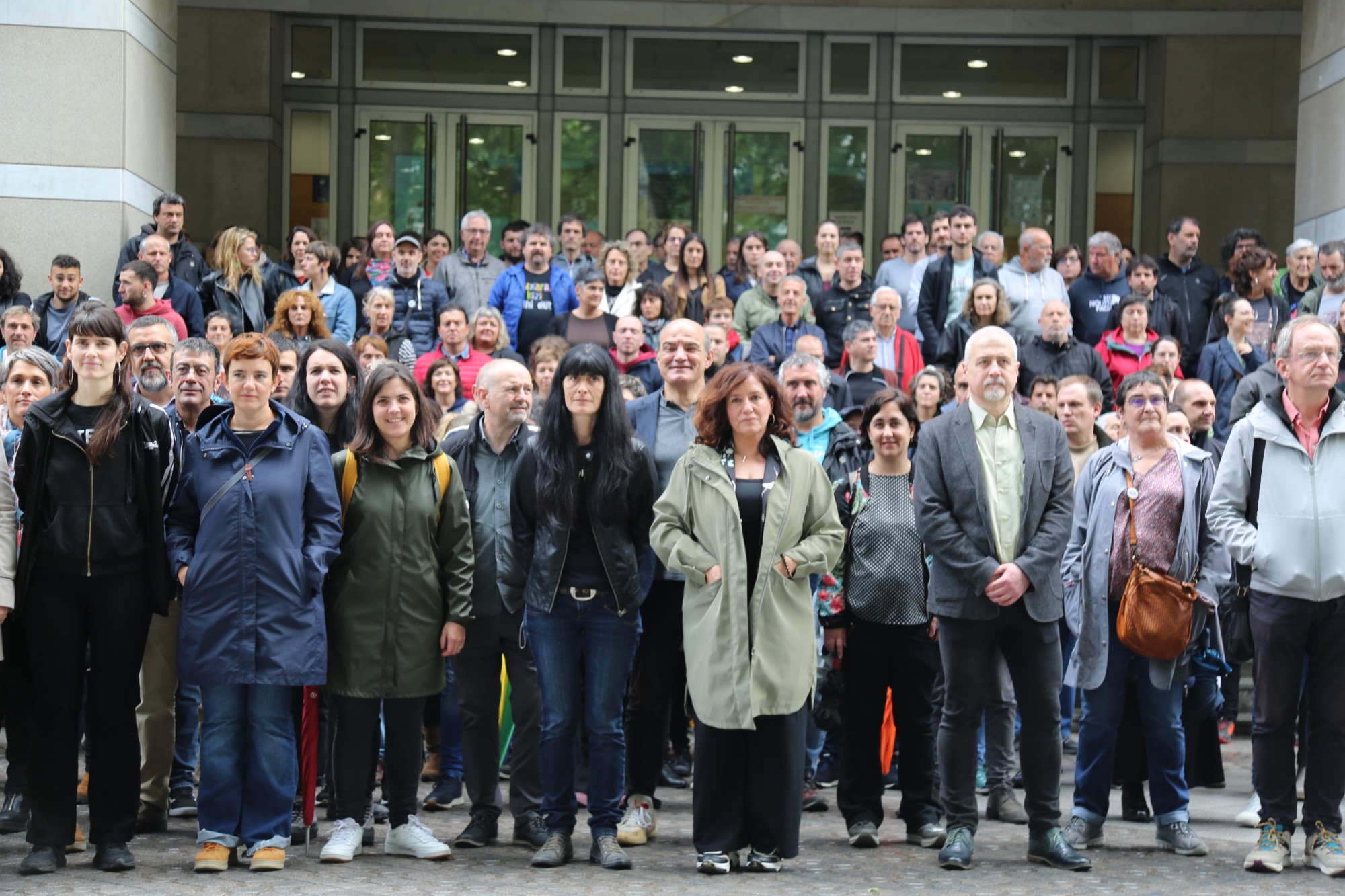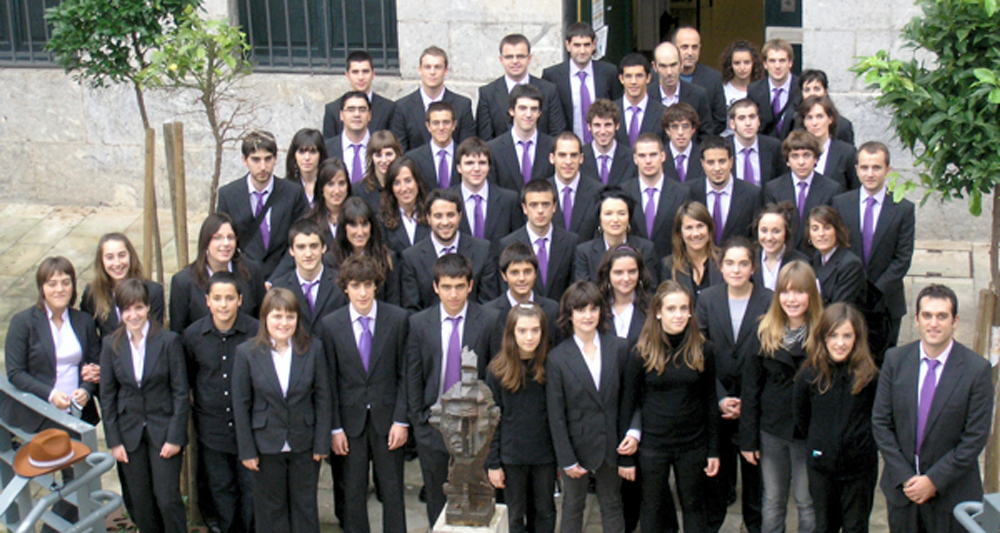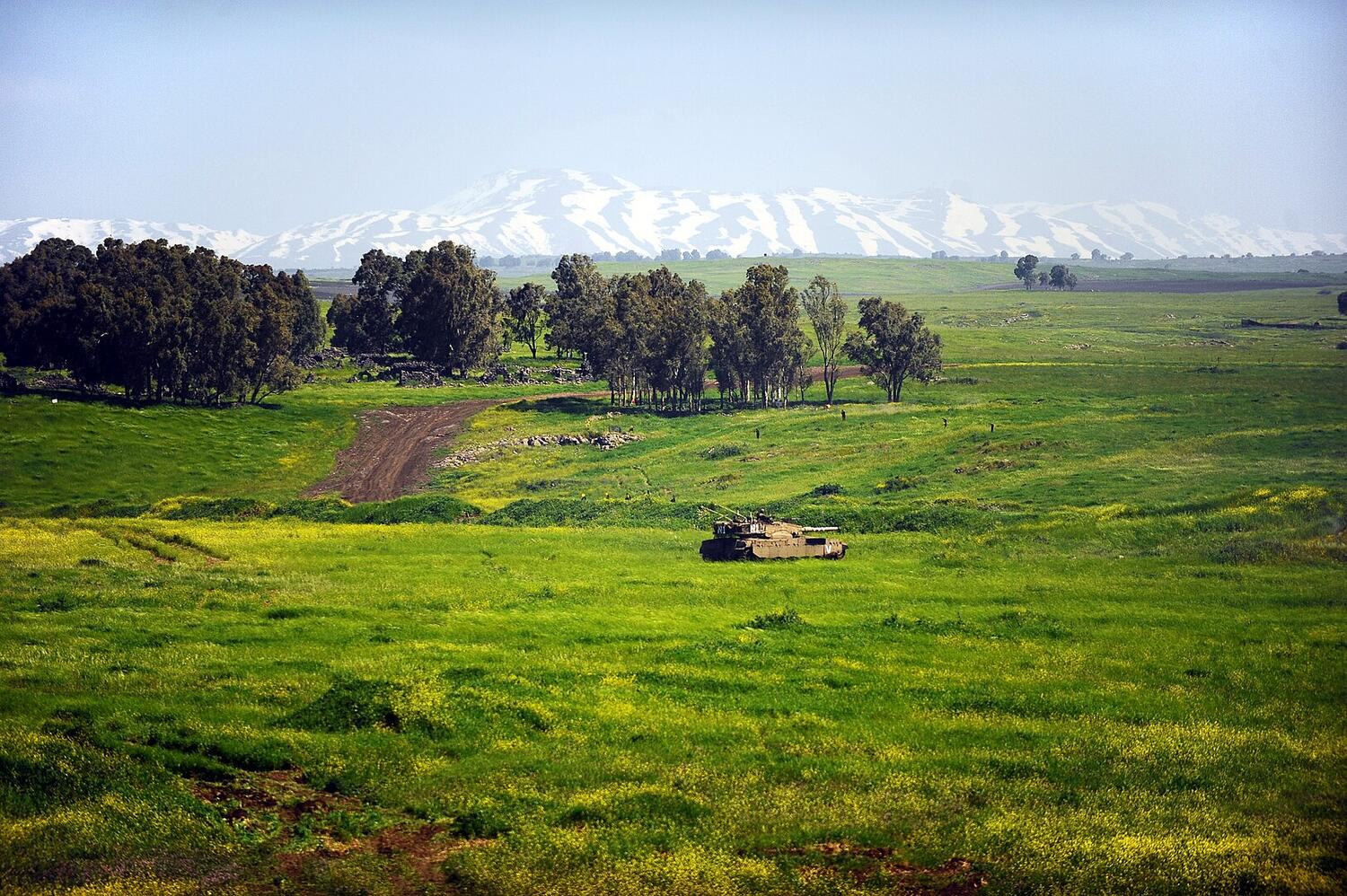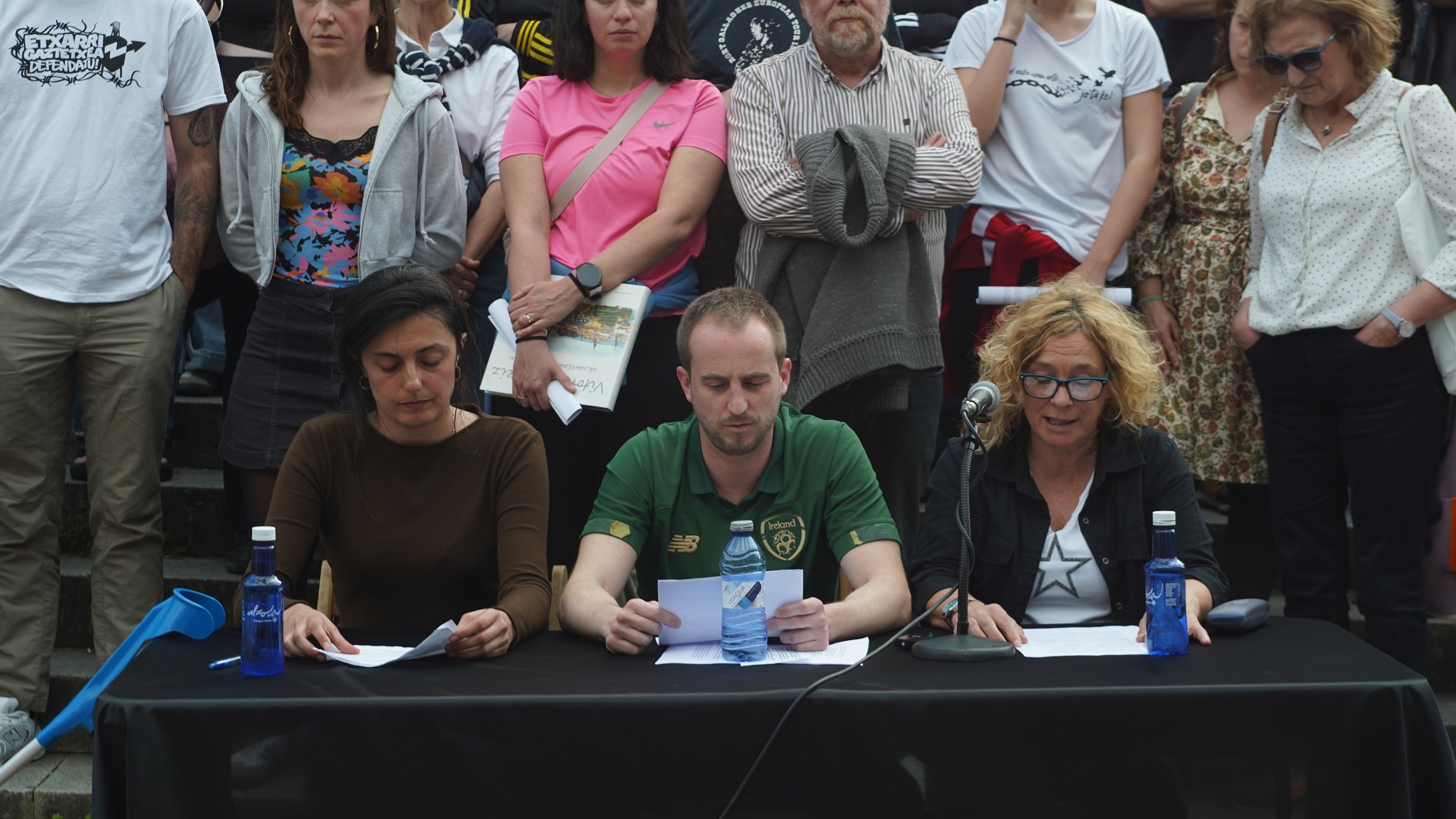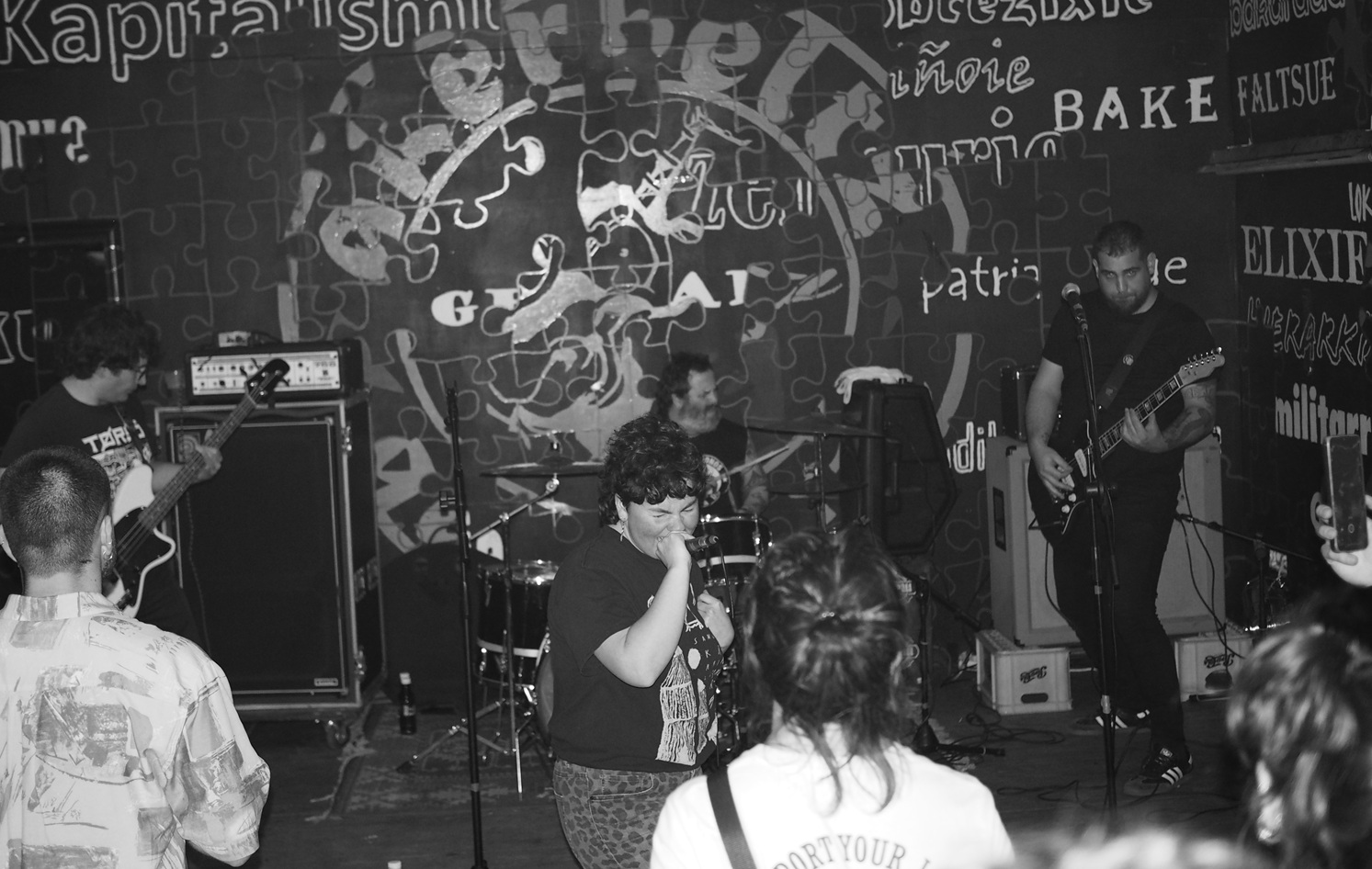Basque? Movie? Development?
- Last July 2, I got a hard job with the friends of Heleta, the Euskal Herria Zuzenean festival. As part of the conference on culture, after Antton Luku, I was sent a point about “the development of Basque film”, and I was asked to speak about it. I suddenly saw myself as a storyteller or a priest to talk about something that doesn't exist. Because there can be no development that has no beginning. Because “Cine Vasco” doesn’t emerge.
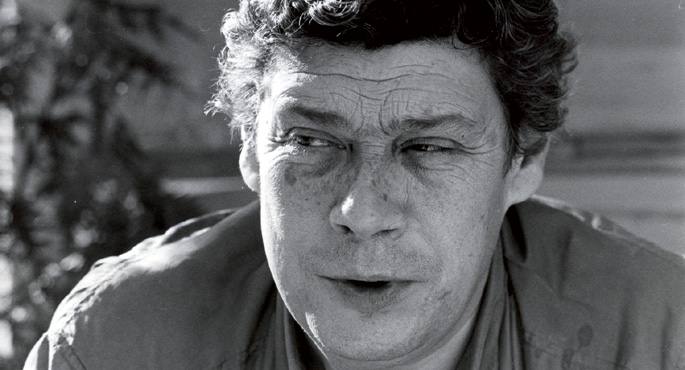
The reader will think I'm looking for provocation. And no. It must be clearly repeated that, neither today nor in history, the Basque Film has existed and never existed. It is an almost empirically demonstrable reality. The “Spanish cinema”, “Yankee cinema” or “French cinema” are recognized and recognized by all as distinct and identifiable corpus, but when defining the Basque Cinema, as with all metaphysical concepts, one cannot agree.
I believe that there are two main reasons that have led to this inconsistency. On the one hand, that the Basque filmmakers have not been able to pursue it – and here, in addition to the issues of creation, we must mention the industrial character of the Cinema – and on the other, that the Basque Film cannot be followed, because even the Basque Country does not exist. If we were to show up on the maps, nobody would question us. But cartographers also erased us from the atlas of cultural geography.
I could classify them into four main groups, films that are measured in the Aturri al Ebro area. First, the Basque films, the fragile and endearing flowers that appear when you least expect it. Then, works that, although not in Basque, are completed with a local gaze. Thirdly, I would classify films made by foreigners over the Basque Country or over the Basque Country. And finally, what we could call Colonial Films; that is, films that understand Euskal Herria as a cultural colony.
I recognise, therefore, that films have been made in the Basque Country. Recognizing also that Basque films, recognized as Basque films according to different definitions, have been ... But in any case, even though there are Basque films, the Basque Film, that is, Basque Cinematography, does not exist and has not existed.
The next question, of course, is quite clear. “There is no Basque Cinema then. But ... Is it possible to be?” I think the answer is categorical: “Yes, Basque Cinema is possible. And besides being possible, it is necessary.”
It's possible, first of all, because although Euskal Herria doesn't appear on the maps, it actually exists. Because we Basques create it every day by imagining it like this, as Joseba Sarrionandia recently reminded us. And it is possible, secondly, because the other arts show us this: if there is “Basque literature” or “Basque music”, why won’t there be “Basque cinema”?
But he said that it's not only possible, it's necessary. In fact, one of the most dangerous evils Euskal Herria has in her struggle for survival is Alzheimer's, and among the ways of fighting it, cinema is a very valuable expression of collective memory. Chilean documentary Patricio Guzmán has long explained it perfectly: “A people without film is like a family without photo albums.” In addition, when a people is seen on the screen – don’t forget that films are normally seen in groups, in silence and in the dark – the people are “creating”; when the celluloid causes “mirror effect” on the viewer, in fact, there is a people, with their experience, emotions and their shared codes.
Just look around to realize how valuable cinema has been for many peoples struggling to survive in the world. In Ireland or Algeria, for example. Or in Scotland, where, as I recently read, one of the reasons for tripling independence in a decade has been the huge echo (made in the United States) of the Abertzale film Braveheart. If we look at history, we will see that there have also been several attempts in the Basque Country. In the case of Antton Ezeiza, moreover, by combining practice with theory, which pioneered raising some of the ideas and concerns I have mentioned here. However, both Ezeiza’s and all other attempts failed gloriously, as a chain that breaks from eye to eye.
But let's go back to today. I said before that the Basque Cinema was possible and necessary. Well, today there are better opportunities than ever, both technically and humanely. In recent years, several Basque films have been made, sometimes with high quality. But now, from the lonely flowers, we have to go to the garden. From making Basque films to completing the Basque Cinema.
In this collective work of construction of the Basque Cinema Esistente, typical of an essential Basque Country, each must contribute its own ideas. I, humbly, would like to make a few small suggestions. Steps that should be taken sooner rather than later, aware of their urgency, which artists, popular movements and institutions must drive together.
The first is the need to create a national network for the projection of Basque films outside commercial circuits. A network of spiders that, including the seven provinces, will be protected by municipalities and managed by municipal groups. This would undoubtedly be the greatest guarantee for survival; our respiratory system.
Second, the reproductive system: uterus. Following the model of the Cuban EICTV, create a powerful National Film School to train young people, with great resources and inviting top-level teachers. Although these are foreigners, it would be necessary for the language of the school to be the Basque – after all, it does not matter if a given lesson in German is translated into Basque or into Spanish/French. It could start with the organization of three courses of fifteen scholarships a year, lasting one month. For example, placing the school in Ipar Euskal Herria. Another key is not to forget that the body extends from ears to feet and from Aturri to Ebro.
And the third proposal: the Basque Film Festival, which will be in sight, in the heart and in the head. Entirely in Basque, but open to the world through subtitles. A place of meeting and debate for the Basques. A place to get to know the forgotten works of the previous ones and publish new ones. It does not have to last ten days; to begin with, it can only be the “Basque Film Weekend”. Discovering the gems unknown so far and enjoying the shorts and feature films of today, we have work for some editions.
I'm going to finish. They say that in 2016, with Donostia as the European Capital of Culture, the world will come to us a year. It can be a unique opportunity for us to go out into the world. Let us get to work, therefore, and perhaps the Basque Cinema is present in 2016, such as the Basque Literature, the Basque Theatre or Basque Music. So, the world, sitting on the beach of the Zurriola, will look to the right, from Aturri to the Ebro, and will not doubt that Euskal Herria exists.
Until now we have believed that those in charge of copying books during the Middle Ages and before the printing press was opened were men, specifically monks of monasteries.
But a group of researchers from the University of Bergen, Norway, concludes that women also worked as... [+]
Florentzia, 1886. Carlo Collodi Le avventure de Pinocchio eleberri ezagunaren egileak zera idatzi zuen pizzari buruz: “Labean txigortutako ogi orea, gainean eskura dagoen edozer gauzaz egindako saltsa duena”. Pizza hark “zikinkeria konplexu tankera” zuela... [+]
Aposapo + Mäte + Daño Dolor
When: April 5th.
In which: In the Youth Center of Markina-Xemein.
---------------------------------------------------------
I’ve made my way to the cheese house with the shopping cart full of vegetables, and we’ve spent the evening cutting... [+]












